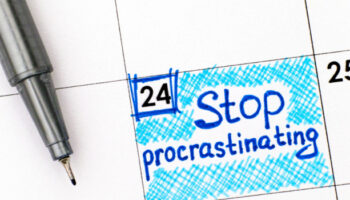Are Fake Rules Running Your Life?
The Nystrom & Associates provider consulted for this article is Dr. Karin Ryan, PsyD, LP, Clinic Director, Outpatient Therapist.
We all have guiding principles, beliefs, and rules that help guide our behavior and make us who we are. These rules keep us accountable, keep us going, and keep things reliable or consistent.
However, there can be another side to rules, called fake rules. Fake rules are ones that we make up for ourselves that do not serve us and are based on mistaken beliefs. These self-imposed rules are critical and judgmental in nature. They can make us feel overwhelmed and stuck by making things more complicated or rigid than they need to be.
Recognizing that these “rules” are rules that we made up can help us take one step toward releasing them and decreasing unnecessary stress.
Related: 8 Mindfulness Practices to Reduce Stress
Nystrom & Associates on Twin Cities Live
Fake Rules in Action
One client of Dr. Karin Ryan's has a perfect example of the fake rule concept that she gave permission to share:It was the night before trash day, and she needed to take out her full trash bin upstairs because it was overflowing. She thought, “If I take that trash out, I need to take out the kitchen trash. And if I am going to take out the kitchen trash I need to go through the refrigerator and toss expired food. And the chicken there will expire over the next week. So, I need to make that chicken tonight.” It went from taking out the trash to cleaning out the fridge and making chicken! She was able to stop and say, “No, I don’t. I do not have to do all those other things, some days I want to or can but tonight I cannot, I am just going to take out the one trash.” She did not even make herself bring it outside. Then after a few minutes, she wanted to take out the kitchen trash too and even ended up bringing them both outside. But if she had followed the “rule” that she needed to do all the steps and make the chicken, she would have never started!In other words, sometimes we impose "rules" that might make us not take any action at all. Rather than jump to a rule that leads to many other steps, try stopping yourself and catching the rule in its tracks. Doing so causes less worry and improves our mental health. Related: 10 Tips to Make Therapy More Effective
Fake Rules in Our Lives
There are so many ways we can generalize the message of what fake rules can look like and how to break them down. Dr. Karin Ryan outlines some fake rules you might relate to:- “If I mow the lawn I must weed whip around the trees.” That is not a rule, you can just mow.
- “If I shower I always need to shave, condition my hair, and dry my hair.” Not true, you can just wash your body or just wash your hair.
- "If I am hosting I need to clean the house and make a meal." That is not a rule, you can get takeout, meet at a restaurant, or just clean off the table.
- "If I am going to the store I should return these three things and look for new shoes." Says who? That might be efficient, but maybe you do not have the energy for that.
- "Doing laundry means doing the whole basket." Where is that rule written? You can do a small load of the clothing needed.
- "If I am going to do the dishes I have to do all of them." No, you do not. You can just wash a plate and fork.
How to Spot a Fake Rule
There are some words to watch out for to recognize fake rules. They typically start with, “I must, I always, I should, I have to.” As put by Dr. Karin Ryan, fake rules often come from mistaken beliefs:- I am only good enough if I do things right
- I must complete it all or I lack follow-through
- If I don't do everything I am supposed to I am lazy
- If I don't do it right, it won't be okay






